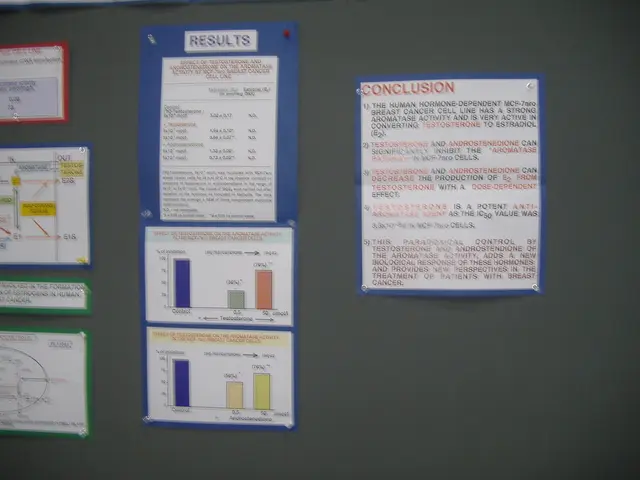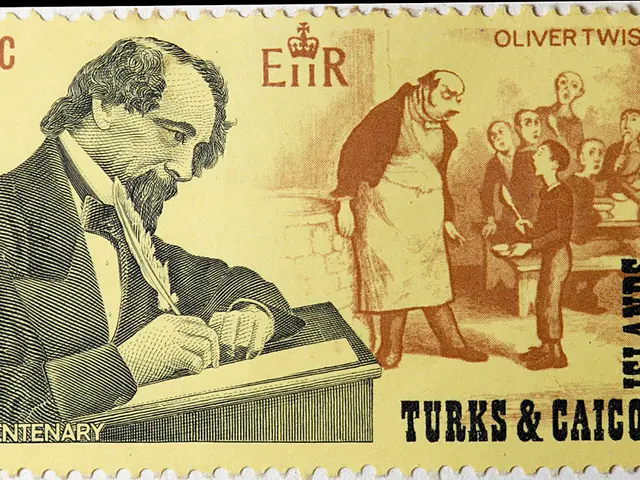Deals and purchases, particularly mergers, becoming more fortified and assured
In the ever-evolving landscape of mergers and acquisitions (M&A), European dealmakers are increasingly turning to insurance solutions to manage risks, particularly those related to tax and litigation. This cautious but growing trend is driven by market uncertainty and a desire to secure deals in a challenging economic climate.
The Italian market, for instance, has aligned with this trend by offering specific litigation and tax insurance policies. These policies, which can cover risks such as corporate income tax, personal income tax, substitute taxes, and property taxes, provide security for both the seller and the buyer, reducing uncertainty and accelerating the decision-making process.
Tax insurance policies also cover potential disputes with tax authorities, arising from ambiguous tax law interpretations or unresolved issues during fiscal analysis of a transaction. Similarly, litigation policies cover legal disputes and, like tax policies, allow potential liabilities to be contained in exchange for a one-time premium, eliminating potential deal-breakers from the operation.
These policies are particularly useful in M&A operations, where risks linked to known facts, such as tax issues and litigation found during the due diligence phase, can significantly impact the transactions. They are suitable for low probability, high exposure risks and require a solid legal analysis supporting the tax position insured.
Examples of common tax risks include the tax treatment of dividends distributed abroad, capital gains from the sale of qualified participations, tax treatment of earn-out payments, availability or existence of Net Operating Losses, Transfer Pricing, and VAT issues.
Andrea Foti, Emea Chief Commercial Officer M&A of Aon, explains that tax issues require companies to protect themselves to facilitate transactions and mitigate potential liabilities for acquirers. Litigation policies, like tax policies, allow funds that would otherwise be immobilized to be freed up, and to use them for other purposes without having to resort to external financing.
The Warranty & Indemnity ("W&I") policy, which covers the insured from negative economic consequences, has spread rapidly among various professionals and sector operators. This specific trend is well documented globally, and while the recent European market appears cautious, it is gradually receptive, leveraging insurance products more selectively to mitigate litigation exposures and tax uncertainties in complex deals.
In 2025, European M&A activity reflects careful dealmaking due to macroeconomic uncertainties, geopolitical instability, and inflationary pressures. This cautious environment impacts insurance carriers and their willingness to engage in large transactions, encouraging smaller deals and internal capital strategies instead.
However, the insurance industry is concurrently adopting innovations like dynamic pricing to better manage risk and market adaptability, indicating a focus on responsive risk management rather than broad expansion. This adaptability could support more sophisticated insurance solutions in M&A in the future.
In summary, European M&A insurers and dealmakers are cautious but continue to explore insurance solutions to manage risks including tax and litigation, driven by market uncertainty and a desire to secure deals. Overall M&A volumes in insurance and related fields are down markedly in 2025 but smaller, targeted acquisitions and insurance-related risk mitigation tools are more common than large-scale transactions. Specific insurance solutions for tax and litigation risks are growing tools globally and likely developing further in Europe, though concrete recent data is sparse. If more detailed data on European uptake of tax and litigation risk insurance in M&A becomes available, it would provide clearer evidence of the precise scale and growth trajectory.
The insurance solutions, such as litigation and tax policies, are being utilized by European dealmakers to manage risks in the finance business, particularly those related to tax and litigation. These policies provide security for both parties in a deal, reduce uncertainty, and accelerate decision-making, making them useful tools in complex mergers and acquisitions (M&A) operations.
In the current cautious market, insurance products like Warranty & Indemnity ("W&I") policies, which cover the insured from negative economic consequences, are becoming increasingly popular among professionals and sector operators as a means of mitigating litigation exposures and tax uncertainties.




